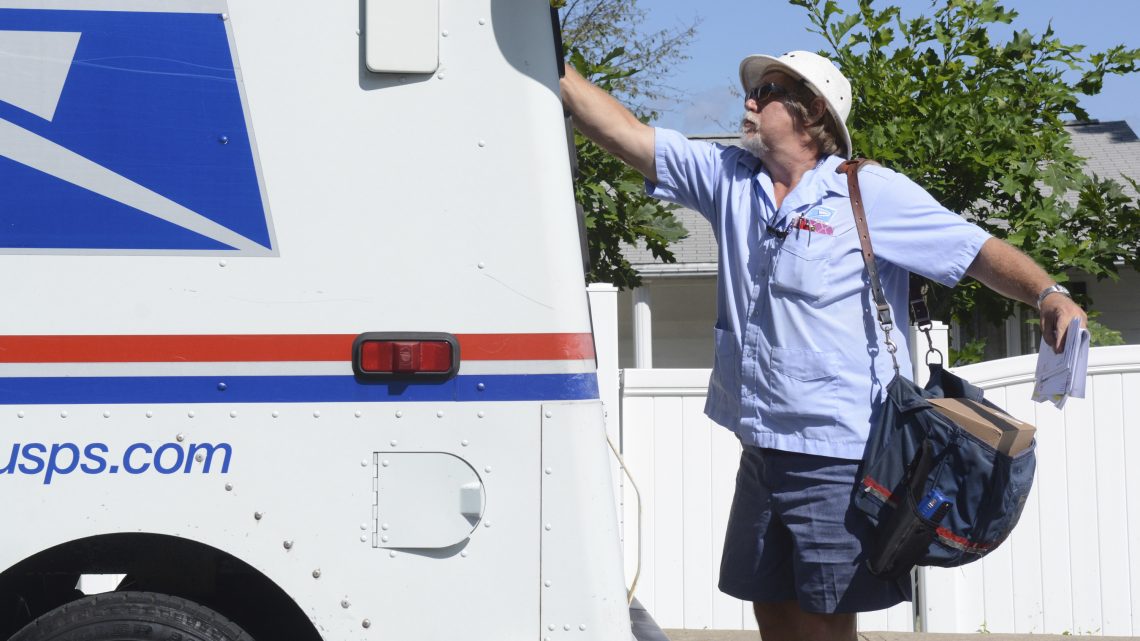
USPS Is Telling Mail Carriers They Can’t Sign as Witnesses for Voters
August 21, 2020Want the best of VICE News straight to your inbox? Sign up here.
As more and more states have leaned on mail voting this year, some voters have been encouraged to ask their mail carrier to witness their ballots in states that require a second signature.
As it turns out, that’s a no-no with the United States Postal Service.
The USPS has a longstanding but little-known policy against allowing workers serving as witnesses for people who are voting by mail. That policy might not have mattered much in the past, but the rule matters this year, when millions more people than usual plan to vote by mail to avoid possible coronavirus exposure. Although the rule isn’t new, both postal workers and election officials in multiple states say it’s news to them. And the renewed enforcement efforts come at a crucial time: around 80 days before the election, as drastic changes to USPS operations have dramatically slowed the mail.
“We’ve never heard that, as far as I can tell,” said Patrick Gannon, a spokesman for the North Carolina Board of Elections.
North Carolina is one of four states that require at least one observer to sign as a witness on a person’s mail ballot for it to be valid, along with fellow swing states Wisconsin, Alabama, and Alaska. Two other states, South Carolina and Virginia, have repealed their witness requirement this election because it creates an extra hurdle to voting.
The rule matters most for people who live alone and are being extra-cautious about the coronavirus, or live in a heavily rural area where it’s not as easy to find someone else to sign a ballot.
USPS officials insist it’s a long-standing policy.
“Postal employees are prohibited from serving as witnesses in their official capacity while on duty, due in part to the potential operational impacts,” USPS spokeswoman Marti Johnson told VICE News in an email. “The guidance has not changed this year. The Postal Service does not prohibit an employee from serving as a witness in their personal capacity off-duty, if they so choose.”
Johnson didn’t offer a specific time when this rule was implemented. But the little-known rule was in place during the last election, and it appears that it’s been in place for longer than that.
USPS officials are making sure their employees know about the rule. They sent out an email to employees nationwide in mid-July highlighting the rule and included it as a “need-to-know” item in the USPS’ weekly digest to employees sent on August 18. Both were obtained by VICE News.
The item in the USPS weekly digest uses language almost identical to the wording in the earlier email.
The rule came to light after some Alaska voters were surprised when their mailmen said they weren’t allowed to witness voters’ ballots, and Alaska’s head of elections emailed the USPS to ask what was going on.
“The State of Alaska has been receiving calls and emails from voters who have attempted to have their ballot witnessed at the post office by a postal official. They have been told by the postal official that they are not authorized to serve as a witness in their official capacity.
This came as [a] surprise to the state, because we know in past elections postal officials have served as witnesses. Rural Alaska relies heavily on postal officials as they are often sometimes the only option for a witness,” Alaska Division of Elections Director Gail Fenumiai wrote in an email to the USPS that she shared with VICE News.
Daniel Bentley, a USPS official, emailed back to spell out the rule.
Fenumiai told VICE News in an email that “to the best of my knowledge,” it had never been an issue for voters before to get their ballots witnessed by their mailmen.
The USPS mail witness rule was first reported on by the Alaska Daily News, which said the rule is a new policy. It doesn’t appear that’s accurate.
The rule was so little-known and unenforced that during Wisconsin’s chaotic April primaries, strategists with both political parties encouraged people who lived alone to get their mailman to witness them voting through a window and sign their ballot after they slipped it under the door.
Wisconsin Elections Commission spokesman Reid Magney also hadn’t known about the policy until recently. He told VICE News that one of his staff members spoke to a USPS official on Tuesday after the rule was reported on in Alaska. The USPS official confirmed the policy but told them it isn’t new — that postal workers aren’t supposed to perform any side tasks while making deliveries.
The new emphasis on the rule comes as top USPS officials have moved to make drastic changes to the organization’s operations that have dramatically slowed down the post office’s capabilities and delayed their mail services by days. Most significantly, perishable goods and badly needed medicines have been delayed. But it’s also a huge potential problem for the looming election, as many states’ ballots that don’t get in by Election Day don’t count — even if they were mailed well before Election Day. President Trump has publicly said he opposes giving more money to the USPS because of his problems with mail voting, which he thinks benefits Democrats.
Louis DeJoy, a major GOP donor who was recently installed as the head of the USPS, is facing a bevy of questions for why he’s making these changes. DeJoy is insisting that the changes won’t impact the election. But he’s ordered at least 671 mail-sorting machines to be disabled, and testified in the Senate on Friday that he wouldn’t let them be brought back online to speed up mail delivery.
The rule predate’s DeJoy’s tenure by years. But it seems to have been largely unenforced — until now. And it could create some complications for people who live alone in a remote location or are leery of coming into contact with others to cast their ballot.
Aaron Gordon contributed reporting to this story.
Cover: Greg Andregic, letter carrier and National Association of Letter Carriers union steward, closes the door to his truck in Pottsville, Pa., on Tuesday, Aug. 18, 2020. (Lindsey Shuey/Republican-Herald via AP)


